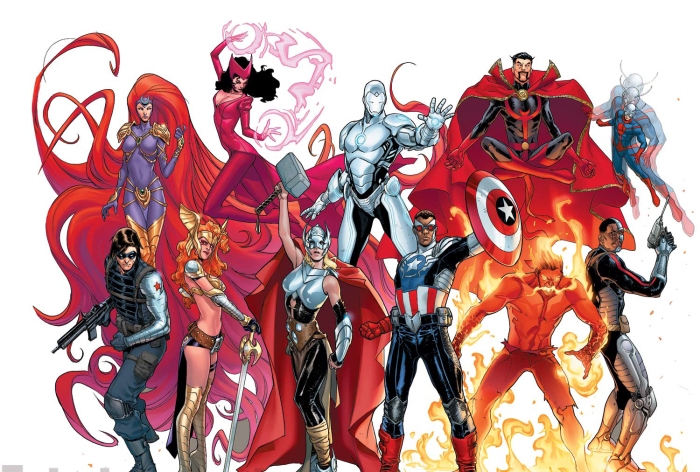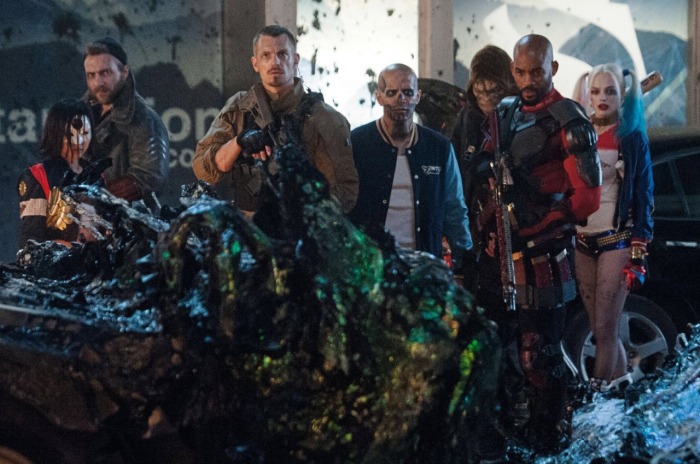
In the world of comic books, there’s no path to pleasing everyone with the selection of gender, race or religion for key characters. Take a hero who is traditionally white and/or male and reimagine as someone else, and there’s a backlash. Populate your universe with too many white males, and there’s a backlash. Is there too much emphasis on diversity or not enough? The answer is that, for skilled storytellers, the selection of characteristics should be a beginning point, not a conclusion.
The question of diversity in the entertainment industry is a subject of pervasive debate, and is certainly not unique to superhero depictions. It does take on a heightened significance for a juggernaut like Marvel Comics, however, for several reasons. With Marvel superheroes (and DC), your starting position is defined by a tableau in which the most iconic, famous figures – the signature elements of the brand – were created 50 to 75 years ago and are undeniably dense with white males. Whether that’s a fault of the times, a lack of vision in a different era, or simply a mirror of the predominantly white male writers and artists in the industry back then, it is too late now to change the past.
Marvel, moreover, is wildly popular and enjoying a fabulously successful Renaissance. The MCU is a multi-billion dollar enterprise, and in a state of perpetual evolution with each new movie, television initiative and print development. The casting and character choices made by such a high-profile entertainment dynamo will naturally have a spotlight that a lesser franchise would not inspire. The core fan base, too, tends to be a younger crowd than many brands, and the conventional wisdom is that millennials place a higher premium on diversity than earlier generations.
In print, Marvel has been leading a charge in diversification. Thor is now a female, Captain America is African American and Iron Man is a black woman. Characters like Miles Moreno and Kamala Khan are wearing the costumes of formerly plain vanilla heroes. Has Marvel gone overboard? I’ll assume the creators know what they’re doing in terms of satisfying the core fan base while expanding the appeal for commercial and artistic success. As has always been the case, it will all depend on what the artists and writers do with those characters, beyond the selection of gender and ethnic characteristics.
In film, it’s been a recurrent source of controversy. The protagonists in the first five installments of the MCU were all white guys. Why so long to schedule a female lead with her own movie? Why no films yet featuring a hero of color? The Iron Fist of the comic books was a Caucasian male, but the choice of a Scandinavian-looking dude for the Netflix series was regarded as a missed opportunity for an Asian master of martial arts. Take the Ancient One, an elderly mystic from Tibet, and make him a white woman – what’s that all about? And now the latest flare-up is the casting of Zendaya as Mary Jane Watson in the upcoming Spider-Man movie, when the Mary Jane in the comics is clearly a redheaded white girl.
Anyone criticizing the Mary Jane decision, in my view, is missing the point. Zendaya is a much better choice for the part than Kirsten Dunst, notwithstanding her redheadedness. The essence of Mary Jane in the comics is that she’s a head-turner who knows it, gorgeous, self-confident and out of Peter Parker’s league, a wild party girl who ultimately shows unexpected depth and resolve. Her first line in Spider-Man #42, when meeting Peter, is “Face it, tiger – you just hit the jackpot.” Kirsten Dunst is far from unattractive, but she projected a vulnerability and self-doubt that was out of whack with the MJ from the comics. Zendaya has the ravishing looks for the part. We’ll see if the scriptwriters and director can better realize the original character.
Ultimately, with all of these diversity choices (or lack thereof), the critical thing to remember is that an accent is not a character, nor is a skin color, religion or gender. You can assign those incidents of identity at the outset, but having done so you can’t think you’re done creating an interesting or engaging character. Robert Downey, Jr. breathed dynamic life into Tony Stark – he wasn’t just playing the part of a generic white male. Zendaya can be an awesome MJ, but it won’t be because of her pigment. You can’t treat diversity as an end game. You still have to tell a compelling story with three-dimensional characters who will move and thrill the audience. Diversity won’t redeem a failing effort, but certainly won’t hinder success.
And no matter which way they go with casting choices, they’ll never satisfy everyone.

 The latest entrant in the DC Extended Universe, Suicide Squad, has been released, and three things are happening just as expected. First, the reviews are bad. Second, the DC faithful are angry about the negative critical reception. Third, the movie will have strong but ultimately disappointing performance at the box office.
The latest entrant in the DC Extended Universe, Suicide Squad, has been released, and three things are happening just as expected. First, the reviews are bad. Second, the DC faithful are angry about the negative critical reception. Third, the movie will have strong but ultimately disappointing performance at the box office.